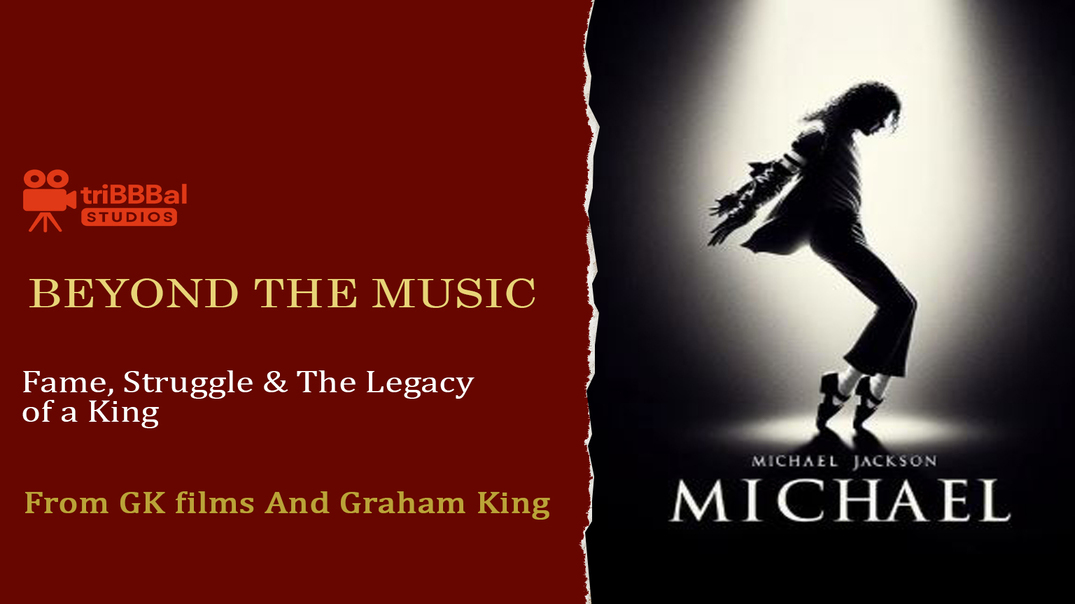Michael: The King of Pop's Biopic
Share this post:
Introduction
The highly anticipated Michael Jackson biopic, simply titled "Michael," has officially wrapped filming. With a new release date set for April 24, 2026, the film aims to bring the King of Pop's extraordinary life to the big screen, a prospect that has ignited immense anticipation and considerable debate among fans and critics alike. This article delves into the intricate world of the film, exploring the challenges and opportunities that lie ahead as the filmmakers strive to deliver a comprehensive and authentic portrayal of one of music history's most iconic, yet controversial, figures.
The Complexities of Post-Production
Post-production is often considered the unsung hero of filmmaking, where raw footage is transformed into a polished cinematic experience. For a biopic of Michael Jackson's magnitude, this phase is particularly critical and fraught with unique challenges. Reports indicate that the film has required an extended post-production period, including additional filming and reshoots, suggesting that the initial cut may have presented complexities that necessitated further refinement.
The editing process will be a monumental task. With a life as rich and multifaceted as Michael Jackson's, deciding what to include and what to omit, how to pace the narrative, and how to transition between different periods of his life will require immense skill and sensitivity. The goal will be to craft a compelling story that flows seamlessly, capturing the essence of his artistry and personal journey without feeling rushed or disjointed.
Music integration is another crucial aspect. Given Jackson's unparalleled musical legacy, the film's soundtrack will be central to its appeal. This involves not only selecting the right songs for each scene but also ensuring their seamless incorporation into the narrative, whether through performance sequences, background scores, or thematic elements. The challenge lies in making the music an organic part of the storytelling, rather than merely a collection of hits.
Finally, the application of special effects will play a role, particularly in recreating iconic performances or transforming actors to accurately portray Jackson at different ages. These effects must be executed flawlessly to maintain immersion and authenticity, avoiding any visual distractions that could detract from the emotional impact of the story.
The Portrayal Debate: Navigating a Controversial Legacy
One of the most significant challenges facing "Michael" is the inherent controversy surrounding Michael Jackson himself. His life, while marked by unparalleled artistic achievement, was also shadowed by legal battles and intense media scrutiny. The film, being a family-approved production, immediately raises questions about its objectivity and how it will navigate these sensitive aspects.
There is considerable debate about how the film will handle the accusations and legal challenges Jackson faced. Will it offer a nuanced perspective, or will it lean towards a more sympathetic portrayal given the family's involvement? The balance between artistic integrity and public perception will be a tightrope walk for the filmmakers. Depicting his personal relationships, particularly with his family and children, will also require careful consideration to avoid sensationalism while still providing an honest account.
The film's success will, in part, depend on its ability to address these contentious issues in a way that feels authentic and respectful, without shying away from the complexities of his life. The filmmakers must strive to present a comprehensive picture that acknowledges both his brilliance and the controversies that defined a significant portion of his public image.
Music Rights: A Foundation for Authenticity
For a musical biopic, the securing of music rights is paramount, forming the very foundation of its authenticity and appeal. In the case of "Michael," the film benefits significantly from the Michael Jackson Estate's close collaboration, which includes access to his unparalleled musical catalog. This is further solidified by Sony Music's recent acquisition of a significant stake in Michael Jackson's publishing and recorded catalogs, a deal valued at over $1.2 billion.
This extensive access to Jackson's music means the film can feature his original recordings, iconic songs, and perhaps even unreleased material, providing an immersive and genuine musical experience for audiences. The ability to use his actual voice and arrangements is crucial for a biopic of an artist whose sound was as distinctive as his moves. This access will allow the filmmakers to recreate his legendary performances with accuracy and emotional depth, ensuring that the musical sequences are not just background elements but integral parts of the storytelling.
The implications for the film's soundtrack are immense. It allows for a comprehensive selection of his hits, deep cuts, and potentially even instrumental pieces that can underscore key moments in his life. This ensures that the film is not only a biographical narrative but also a celebration of his musical genius, allowing his artistry to shine through every scene.
Conclusion: What to Expect from the Final Cut
As "Michael" moves through its post-production phase, the anticipation continues to build. The filmmakers face the monumental task of delivering a comprehensive and balanced portrayal of a figure who remains both revered and controversial. The challenges of editing a complex life, integrating iconic music, and navigating sensitive biographical details are significant, but the commitment of the production team, coupled with the family's involvement and access to the musical catalog, suggests a film striving for authenticity.
The enduring legacy of Michael Jackson, coupled with the passionate expectations of his global fanbase, places immense pressure on this biopic. The final cut will undoubtedly be scrutinized, debated, and analyzed for years to come. Ultimately, "Michael" has the potential to be more than just a film; it could be a powerful re-examination of an artist whose impact on music and culture is undeniable, and whose life continues to fascinate and provoke discussion. Whether it achieves this ambitious goal remains to be seen, but the journey through post-production is a testament to the dedication required to bring such a monumental story to the screen.



